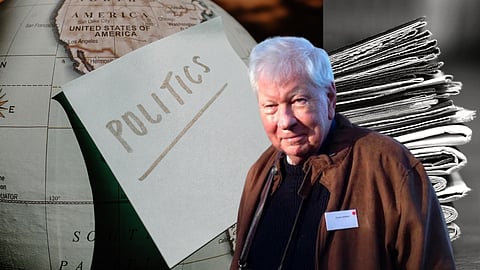News
RW Johnson: SA is sleepwalking to catastrophe – ice is thin, water below icy and deep
The big story is that the government has run into the buffers and that at a time of great international uncertainty.
Key topics:
- ANC's failed VAT hike led to the budget speech cancellation.
- South Africa's soaring debt risks an IMF bailout and policy overhaul.
- Weak growth, corruption, and global tensions threaten economic stability.
Sign up for your early morning brew of the BizNews Insider to keep you up to speed with the content that matters. The newsletter will land in your inbox at 5:30am weekdays. Register here.
Support South Africa's bastion of independent journalism, offering balanced insights on investments, business, and the political economy, by joining BizNews Premium. Register here.
If you prefer WhatsApp for updates, sign up to the BizNews channel here.
By RW Johnson
___STEADY_PAYWALL___

